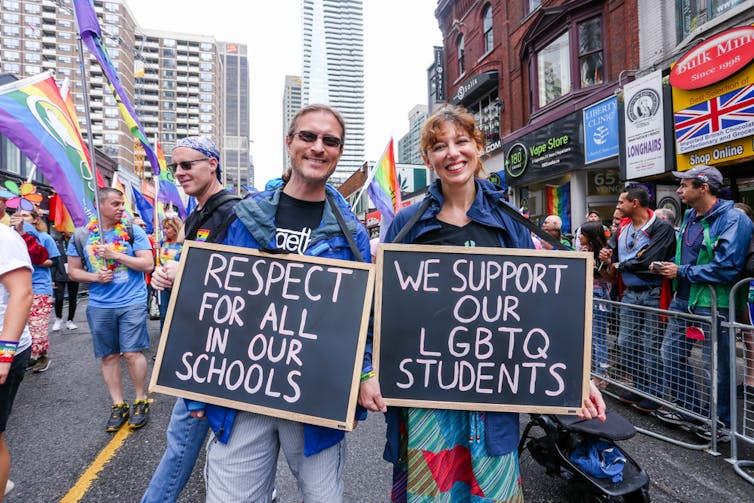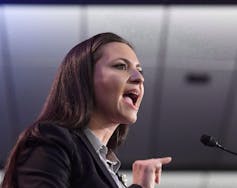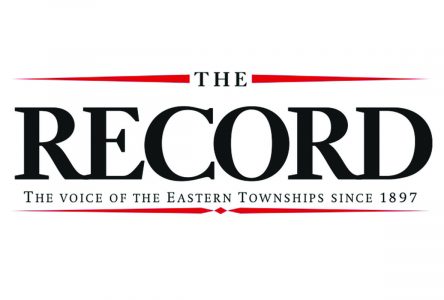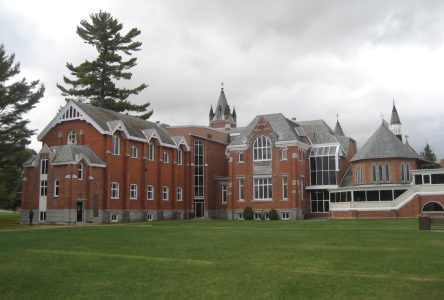
(Shutterstock)
The issue of sex education is in the media now as it was in spring 2018 when politicians promised to repeal contemporary sex-ed curriculum “based on ideology” and parental lobby groups called for the end of so-called “irresponsible” sex-ed curriculum.
I was serving as an elementary school principal at the time and I received written requests from parents to exempt their child from health education classes in which sex education was covered.
As principals, we are obligated to provide the requested accommodations, provided they meet certain criteria.
But as someone who completed a doctorate in education about how
men and women legitimize and promote traditional masculine values or masculinity within the principal role in elementary schools — and as someone who researches educational leadership — I could not ignore the potential difficulties that these sex-ed exemption requests present, particularly for principals who identify with the LGBTQ+ community.
As principals we are expected to develop, maintain and enrich connections between the school and the wider community to support student development. This requires a form of leadership that is grounded in developing relationships. The question becomes: what potential impact might conflicting political viewpoints around the sex-ed curriculum have on these relationships and how are educators, children and families impacted as a result?
As I sat at my desk, in the far corner behind the pen caddy and telephone, visible only to me, lay a small framed picture of me and my husband. My secret: I am gay. I am now on leave, teaching educational leadership, scheduled to return to my school in January.
For the sake of all employees, school communities and children, our school systems need to find a space in which LGBTQ+ educators might re-imagine their professional and political identities.
‘Out and proud’ versus professional
Catherine Connell, an associate professor of sociology at Boston University, writes of the clashing expectations LGBTQ+ teachers face between their political and professional identities. For many of these teachers, this becomes a no-win situation in which they are unable to find ways of merging these identities. They fear professional recrimination should they decide to come out and disapproval from members of the LGBTQ+ movement if they choose to remain professionally closeted.
This same conflict exists for principals, who, among other things, are responsible for creating and maintaining a school environment which is inclusive of all. As a leader, I want to advocate for calls to action for justice and reconciliation and culturally responsive leadership that supports diversity, equity and inclusion.
But I struggle with competing ideologies around what I feel is my duty to come out as a gay principal — and my desire to avoid any sort of conflict as a result.
Fortunately, we live in a time when the rights of persons who identify with the LGBTQ+ community are enshrined within the Canadian Charter of Rights and Freedoms. I have been fortunate not to have been discriminated against as an employee, or as a citizen of Canada because of my sexual identity. This is also influenced by the privileges I have as a white male.

(Shutterstock)
The 2019 Pride Toronto theme was “Freedom” in remembrance of some of the first freedom fighters in the LGBTQ+ community. For me, Pride parades provide opportunities to celebrate our sexual diversities. They also act as a reminder to me of the responsibility I have as an educator and principal to champion these rights and become a role model.
Rise of social conservatism
Jim Farney, a professor in the department of politics and international studies at the University of Regina, traces the development and influence of social conservatism in Canadian political parties. Farney describes the emergence of social conservatism in North America as a distinct subset of the conservative movement that opposes the rise of LGBTQ+ rights, among other issues.

THE CANADIAN PRESS/Justin Tang
In my province of Ontario, we saw the rise of former Progressive Conservative candidate Tanya Granic Allen, a social conservative who, although was eventually removed from her candidacy after facing charges of homophobia and Islamophobia, was initially welcomed by the party leadership.
As president of Parents as First Educators (PAFE), Granic Allen has supported an agenda aimed at discrediting the gains Canada has made in terms of gender equality and expression.
As the letters from parents requesting accommodation to be removed from sex education arrived on my desk, I noted that this was the very first time I had ever received such letters in this community, and I could not ignore the timing of their receipt.
They were carefully worded so as not to contradict the Ontario Human Rights Code, and it was clear to me that these were form letters produced by organizations in favour of repealing the curriculum.
While parents of course have the right to make such requests, I could not help but to interpret these letters as a stance against a curriculum that supported and represented the lived realities of our LGBTQ+ community.
A way forward?
One potential response to such letters could have been to invite parents into my office to discuss their concerns and address any questions they might have about the health curriculum. This is what I should have done. As a gay man, however, I felt uncomfortable with this.
What if parents visiting my office happened to see the photograph of me and my husband? How would I navigate this conversation as a gay man knowing how strongly I feel about gains made by LGBTQ+ social movements?
During this time, I remember feeling a distinct and terrible anxiety around being discovered, and, I began to think about the issues that might come about should these parents discover my sexual identity.
Catherine Connell comments on the history of teachers needing to uphold a “moral authority” with respect to the maintenance of childhood innocence, who must be shielded from any notion of sexuality.
This is a fallacy as this so-called professional stance forces LGBTQ+ educators to maintain and uphold a sexually neutral position, while their heterosexual colleagues display their family portraits in full view.
As a principal, I feel the pressure to maintain this neutrality and yet, there remains in me a strong urge to be out and proud in support of those children who might be questioning their sexual identity.
Nick Rumens, a professor in human resource management at the University of Portsmouth, writes of the need to “queer” our workplaces: that means he questions and formulates new ways that LGBTQ+ identities and sexualities are experienced and represented in the workplace in response to ongoing struggles for queer existence in organizations.
As for myself, this article represents the beginning of my journey, as I merge my identities: I am a principal, who happens to be gay.
[ Like what you’ve read? Want more? Sign up for The Conversation’s daily newsletter. ]![]()
Kenneth MacKinnon, Instructor in Educational Leadership, Western University
This article is republished from The Conversation under a Creative Commons license. Read the original article.




